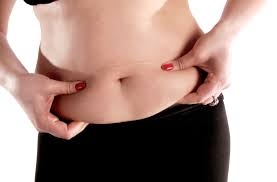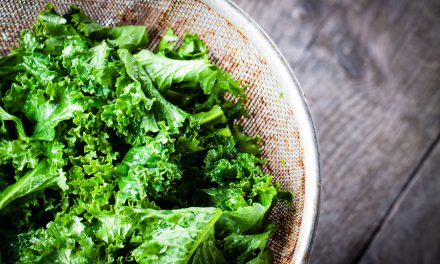Excess belly fat is extremely unhealthy.
It’s a risk factor for diseases like metabolic syndrome, type 2 diabetes, heart disease and cancer.
The medical term for unhealthy fat in the belly is “visceral fat,” which refers to fat surrounding the liver and other organs in your abdomen.
Even normal-weight people with excess belly fat have an increased risk of health problems.
Here are 12 things that make you gain belly fat.
1. Sugary Foods and Beverages
Many people take in more sugar every day than they realize.
High-sugar foods include cakes and candies, along with so-called “healthier” choices like muffins and frozen yogurt. Soda, flavored coffee drinks and sweet tea are among the most popular sugar-sweetened beverages.
Observational studies have shown a link between high sugar intake and excess belly fat. This may be largely due to the high fructose content of added sugars.
Both regular sugar and high-fructose corn syrup are high in fructose. Regular sugar has 50% fructose and high-fructose corn syrup has 55% fructose.
In a controlled 10-week study, overweight and obese people who consumed 25% of calories as fructose-sweetened beverages on a weight-maintaining diet experienced a decrease in insulin sensitivity and an increase in belly fat.
A second study reported a reduction in fat burning and metabolic rate among people who followed a similar high-fructose diet.
Although too much sugar in any form may lead to weight gain, sugar-sweetened beverages may be especially problematic. Sodas and other sweet drinks make it easy to consume large doses of sugar in a very short period of time.
What’s more, studies have shown that liquid calories don’t have the same effects on appetite as calories from solid foods. When you drink your calories, it doesn’t make you feel full so you don’t compensate by eating less of other foods instead.
Bottom Line: Frequently consuming foods and beverages high in sugar or high-fructose corn syrup may cause belly fat gain.
2. Alcohol
Alcohol can have both healthful and harmful effects.
When consumed in moderate amounts, especially as red wine, it may lower your risk of heart attacks and strokes.
However, high alcohol intake may lead to inflammation, liver disease and other health problems.
Some studies have shown that alcohol suppresses fat burning and that excess calories from alcohol are partly stored as belly fat — hence the term “beer belly”.
Studies have linked high alcohol intake to weight gain around the middle. One study found that men who consumed more than three drinks per day were 80% more likely to have excess belly fat than men who consumed less alcohol.
The quantity of alcohol consumed within a 24-hour period also appears to play a role.
In another study, daily drinkers who consumed less than one drink per day tended to have the least abdominal fat, while those who drank less often but consumed four or more drinks on “drinking days” were most likely to have excess belly fat.
Bottom Line: Heavy alcohol consumption increases risk of several diseases and is linked to excess belly fat.
3. Trans Fats
Trans fats are the unhealthiest fats on the planet.
They’re created by adding hydrogen to unsaturated fats in order to make them more stable.
Trans fats are often used to extend the shelf lives of packaged foods, such as muffins, baking mixes and crackers.
Trans fats have been shown to cause inflammation. This can lead to insulin resistance, heart disease and various other diseases.
There are also some animal studies suggesting that diets containing trans fats may cause excess belly fat.
At the end of a 6-year study, monkeys fed an 8% trans fat diet gained weight and had 33% more abdominal fat than monkeys fed an 8% monounsaturated fat diet, despite both groups receiving just enough calories to maintain their weight.
Bottom Line: Trans fats increase inflammation that may drive insulin resistance and the accumulation of belly fat.
4. Inactivity
A sedentary lifestyle is one of the biggest risk factors for poor health.
Over the past few decades, people have generally become less active. This has likely played a role in the rising rates of obesity, including abdominal obesity.
A major survey from 1988-2010 in the US found that there was a significant increase in inactivity, weight and abdominal girth in men and women.
Another observational study compared women who watched more than three hours of TV per day to those who watched less than one hour per day.
The group that watched more TV had almost twice the risk of “severe abdominal obesity” compared to the group that watched less TV.
One study also suggests that inactivity contributes to the regain of belly fat after losing weight.
In this study, researchers reported that people who performed resistance or aerobic exercise for 1 year after losing weight were able to prevent abdominal fat regain, while those who did not exercise had a 25–38% increase in belly fat.
Bottom Line: Inactivity may promote an increase in belly fat. Resistance and aerobic exercise may prevent abdominal fat regain after weight loss.
Check out this video from Dr. Oz (my better half has been on the show) talking about what belly fat is and why we should get rid of it:
5. Low-Protein Diets
Getting adequate dietary protein is one of the most important factors in preventing weight gain.
High-protein diets make you feel full and satisfied, increase your metabolic rate and lead to a spontaneous reduction in calorie intake.
In contrast, low protein intake may cause you to gain belly fat over the long term.
Several large observational studies suggest that people who consume the highest amount of protein are the least likely to have excess belly fat.
In addition, animal studies have found that a hormone known as neuropeptide Y(NPY) leads to increased appetite and promotes belly fat gain. Your levels of NPY increase when your protein intake is low.
Bottom Line: Low protein intake may drive hunger and belly fat gain. It may also increase the hunger hormone neuropeptide Y.
6. Menopause
Gaining belly fat during menopause is extremely common.
At puberty, the hormone estrogen signals the body to begin storing fat on the hips and thighs in preparation for a potential pregnancy. This subcutaneous fat isn’t harmful, although it can be extremely difficult to lose in some cases.
Menopause officially occurs one year after a woman has her last menstrual period.
Around this time, her estrogen levels drop dramatically, causing fat to be stored in the abdomen, rather than on the hips and thighs.
Some women gain more belly fat at this time than others. This may partly be due to genetics, as well as the age at which menopause starts. One study found that women who complete menopause at a younger age tend to gain less abdominal fat.
Bottom Line: Hormonal changes at menopause result in a shift in fat storage from the hips and thighs to visceral fat in the abdomen.
7. The Wrong Gut Bacteria
Hundreds of types of bacteria live in your gut, mainly in your colon. Some of these bacteria benefit health, while others can cause problems.
The bacteria in your gut are also known as your gut flora or microbiome. Gut health is important for maintaining a healthy immune system and avoiding disease.
An imbalance in gut bacteria increases your risk of developing type 2 diabetes, heart disease, cancer and other diseases.
There’s also some research suggesting that having an unhealthy balance of gut bacteria may promote weight gain, including abdominal fat.
Researchers have found that obese people tend to have greater numbers of Firmicutes bacteria than people of normal weight. Studies suggest that these types of bacteria may increase the amount of calories that are absorbed from food.
One animal study found that bacteria-free mice gained significantly more fat when they received fecal transplants of bacteria associated with obesity, compared with mice that received bacteria linked to leanness.
Studies on lean and obese twins and their mothers have confirmed that there is a common “core” of shared flora among families that may influence weight gain, including where the weight is stored.
Bottom Line: Having an imbalance of gut bacteria may cause weight gain, including belly fat.
8. Fruit Juice
Fruit juice is a sugary beverage in disguise.
Even unsweetened 100% fruit juice contains a lot of sugar.
In fact, 8 oz (250 ml) of apple juice and cola each contain 24 grams of sugar. The same amount of grape juice packs a whopping 32 grams of sugar.
Although fruit juice provides some vitamins and minerals, the fructose it contains can drive insulin resistance and promote belly fat gain.
What’s more, it’s another source of liquid calories that’s easy to consume too much of, yet still fails to satisfy your appetite in the same way as solid food.
Bottom Line: Fruit juice is a high-sugar beverage that can promote insulin resistance and belly fat gain if you drink too much of it.
9. Stress and Cortisol
Cortisol is a hormone that’s essential for survival.
It’s produced by the adrenal glands and is known as a “stress hormone” because it helps your body to mount a stress response.
Unfortunately, it can lead to weight gain when produced in excess, especially in the abdominal region.
In many people, stress drives overeating. But instead of the excess calories being stored as fat all over the body, cortisol promotes fat storage in the belly.
Interestingly, women who have large waists in proportion to their hips have been found to secrete more cortisol when stressed.
Bottom Line: The hormone cortisol, which is secreted in response to stress, may lead to increased abdominal fat. This is particularly true in women with higher waist-to-hip ratios.
10. Low-Fiber Diets
Fiber is incredibly important for good health and controlling your weight.
Some types of fiber can help you feel full, stabilize hunger hormones and reduce calorie absorption from food.
In an observational study of 1,114 men and women, soluble fiber intake was associated with reduced abdominal fat. For each 10-gram increase in soluble fiber there was a 3.7% decrease in belly fat accumulation.
Diets high in refined carbs and low in fiber appear to have the opposite effect on appetite and weight gain, including increases in belly fat.
One large study found that high-fiber whole grains were associated with reduced abdominal fat, while refined grains were linked to increased abdominal fat.
Bottom Line: A diet that is low in fiber and high in refined grains may lead to increased amounts of belly fat.
11. Genetics
Genes play a major role in obesity risk.
Similarly, it appears that the tendency to store fat in the abdomen is partly influenced by genetics.
This includes the gene for the receptor that regulates cortisol and the gene that codes for the leptin receptor, which regulates calorie intake and weight.
In 2014, researchers identified three new genes associated with increased waist-to-hip ratio and abdominal obesity, including two that were found only in women.
However, much more research needs to be conducted in this area.
Bottom Line: Genes appear to play a role in high waist-to-hip ratios and storage of excess calories as belly fat.
12. Not Enough Sleep
Getting enough sleep is crucial for your health.
Many studies have also linked inadequate sleep with weight gain, which may include abdominal fat.
One large study followed over 68,000 women for 16 years.
Those who slept 5 hours or less per night were 32% more likely to gain 32 lbs (15 kg) than those who slept at least 7 hours.
Sleep disorders may also lead to weight gain. One of the most common disorders, sleep apnea, is a condition in which breathing stops repeatedly during the night due to soft tissue in the throat blocking the airway.
In one study, researchers found that obese men with sleep apnea had more abdominal fat than obese men without the disorder.
Bottom Line: Short sleep or poor-quality sleep may lead to weight gain, including belly fat accumulation.
Take Home Message
Many different factors can make you gain excess belly fat.
There are a few you can’t do much about, like your genes and hormone changes at menopause. But there are also many factors you can control.
Making healthy choices about what to eat and what to avoid, how much you exercise and how you manage stress can all help you lose belly fat.
*Article originally appeared on Authority Nutrition.












